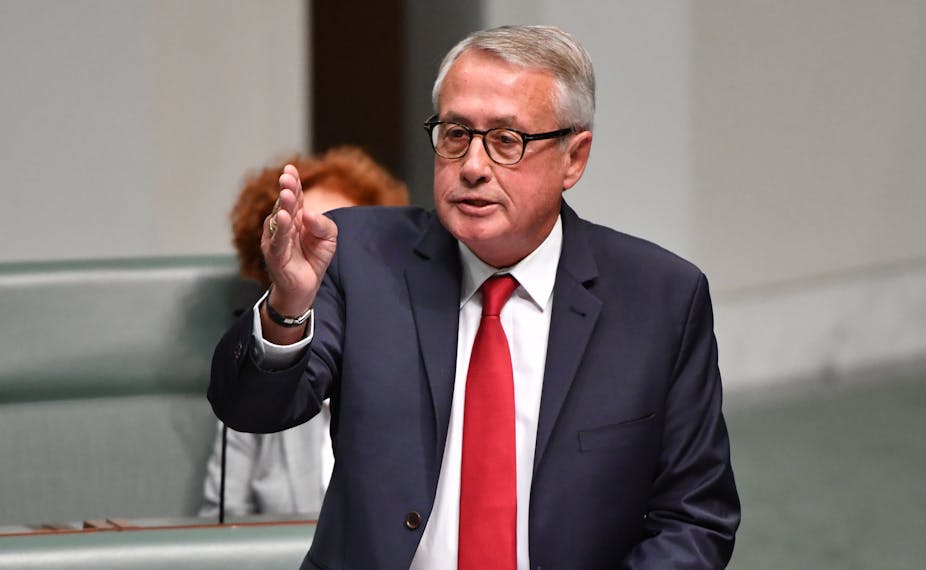Labor party president Wayne Swan has warned that the United States Democrats could be at risk of the overloaded agenda trap that helped defeat the ALP in May.
Writing in the American progressive journal Democracy Swan, a former treasurer, says that in Labor’s loss, the size of its agenda was more decisive than its shape.
“Labor had too many individual policies that, while fully funded, couldn’t be effectively communicated.” Thus opponents could characterise the ALP agenda as big spending and big taxing.
Swan says that given the Australian experience, he feels “some queasiness” at the array of policies being discussed in the emerging Democratic primaries.
“The policies are all urgent and correct, but they are too many, offering attack angles beyond a Republican strategist’s wildest dreams.
"The shape is right – but the sizing is wrong.
"I may be worried about nothing if the Democratic primary process does its job of whittling down the agenda to something more manageable, but I fear for the consequences if the Democratic primaries become a series of purity tests on policy that saddle an eventual nominee with too broad a policy terrain to be adequately defended from Trump and the Murdoch State Media.”
Swan writes that experience in Australia, the US and the recent Scandinavian elections showed the populist right’s rise was hollowing out the centre left’s support among working class and lower-income people.
This was happening “when the right’s solutions only exacerbate the root causes of people’s justified anger at the political system: austerity, the destruction of social welfare, and the turbocharging of inequality.
"Re-channelling this anger toward immigrants and the already disadvantaged is proving a more durable political tactic than anyone expected.”
Read more: How might Labor win in 2022? The answers can all be found in the lessons of 2019
Swan argues that progressive parties have the harder time of it when voters are distrustful.
“In an era of toxic distrust toward politicians and government itself, progressive parties suffer more because we promise more.
"Labor’s agenda was large; beyond a certain point, your ideas just end up jostling for limited political airspace and for a claim on the trust of voters.”
Faced with this “terrible conundrum” progressives can’t do less, according to Swan.
“We cannot retreat on either the shape or the content of our agenda. But size is another thing.
"Like it or not – and I don’t like it one bit – we are living in a world where the right’s success in demonising the whole political class depletes the reservoir of voter trust progressive parties rely on to shape and win a mandate for change.
"This means that we must find a way of communicating our vision through a shortlist of high-profile, easily campaignable policies.
"We must also acknowledge that the agenda can only be as large as the voters’ trust in the leader and the party to deliver it,” he writes.
“In a world of diminished voter trust, progressives must start with a core set of saleable, intelligent reforms that build political capital for the next tranche of reform, and the one after that.”
Labor offered ‘handouts rather than hope’: Richard Marles
Labor’s deputy leader Richard Marles says Labor last votes among low income people at the election by offering parts of its traditional base “handouts rather than hope”.
Addressing the John Curtin Research Centre on Thursday night, Marles said these people “simply didn’t feel we went to the election offering them the tools to move forward, but instead we wanted them to settle for a range of subsidies”.
Labor’s financial relief for cancer sufferers and dental treatment for pensioners got lost “because at our heart we didn’t offer all Australians a root and branch growth and productivity agenda,” he said.
At the next election Labor “must win as the party of broad-based economic growth, high productivity, secure work and fair pay”.
Labor won “when we marry productivity-boosting reforms with fair reward for the working people who deliver our national prosperity”.

